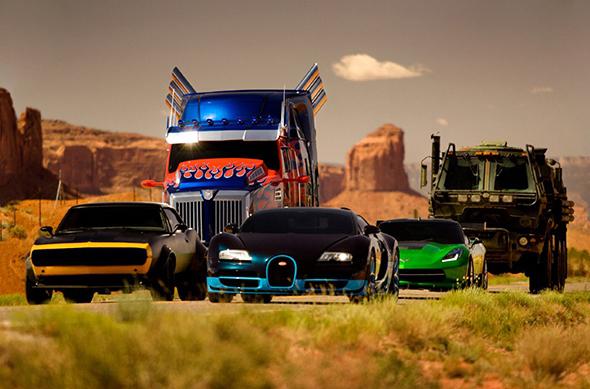I was about two-thirds of the way through my medium popcorn when the Stanley Tucci character in Transformers: Age of Extinction shouted defensively at one of the autobots, “I know you take the bioethical issues very seriously!” It was all I could do to hold on to my precious kernels.
In the film, Tucci plays an arrogant CEO who wants to transfer the brains of deceased Transformers into his man-made Transformers. Is that ethical? And does he think that those Transformer brains are the equivalent of their minds? Is that even metaphysically possible? The warm and fuzzy autobots are understandably offended. Unlike this captain of industry, they seem to have a moral compass in their glove compartments.
Whatever else one says about this insanely discontinuous CGI slugfest, the Tucci character’s line is a minor pop-culture breakthrough that’s worth notice: Considering the ubiquity of bioethics themes in modern sci-fi movies, it’s high time somebody used the “b” word.
By common agreement, historians of science fiction date the genre from Mary Shelley’s Frankenstein (1818), which set the table for countless morality plays about innocent creatures and hubristic scientists. Some of the big names of page and screen are The Island of Doctor Moreau, Brave New World, and Blade Runner. One of the less successful recent efforts, Splice, devolved into a Victorian horror film (a hauntingly beautiful one, I thought). Sometimes the blame isn’t placed on mad scientists so much as the seemingly inevitable engineering products that derive from their discoveries, like the ridiculously overrated Her, about a lonely young man who falls in love with his adulterous operating system, or the very fine Gattaca, which gives a fighting chance to those of us not lucky enough to be genetically modified. Gene transfer can be accidental, as in The Fly and the Spiderman series, and of course there are all those X-Men mutants. The implications of artificial intelligence for the meaning and future of “personhood” are central to Bicentennial Man, AI, I, Robot, and the Terminator series, among many others. Sometimes the challenge is not enhancement but therapy: Experimental surgery ultimately fails the cognitively impaired man in Charly. Ideas about deceptive psychological manipulation are always popular, especially if they involve kids as in The Island (more bioethics by Michael Bay), Never Let Me Go, and Ender’s Game.
Though these films vary widely in their heft and seriousness, the bioethics issues help to give them intellectual substance without requiring a lot of effort, partly by associating themselves with ongoing real-world events. Godzilla resurrects the wholly justified nuclear nightmares of the Japanese original, made just eight years after Hiroshima and Nagasaki, as well as calling attention to the ongoing Fukushima Daiichi power plant disaster. In what might be the best of the big entries this summer, Dawn of the Planet of the Apes, turns on a simian who is driven to hateful violence by his experience in the science lab. As it happens, last year the National Institutes of Health decided to retire their chimps. (The primatologists must appreciate that the angry Kobo is a bonobo, a species famous for their promiscuity, though this one has learned from humans to make war, not love.)
With all the movies I can allude to in my classes, Hollywood has given us bioethics teachers a lot to be happy about. And now that word has been used in Age of Extinction, so I don’t have to convince my students that I’m forcing pop culture into a lecture because I’ve run out of ideas. Transformers raises questions about mutability, personhood, the upshot of technology, and the fact that in the end, we are entirely dependent on the universe, which might at any moment deliver creatures that can be vengeful or compassionate.
Come to think of it, that’s us.
